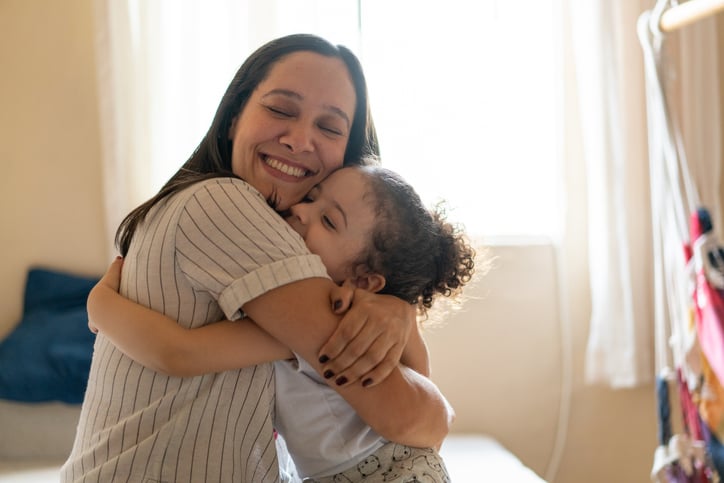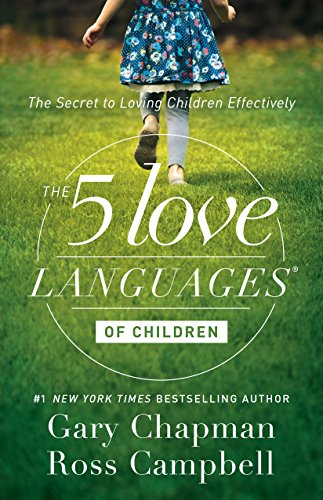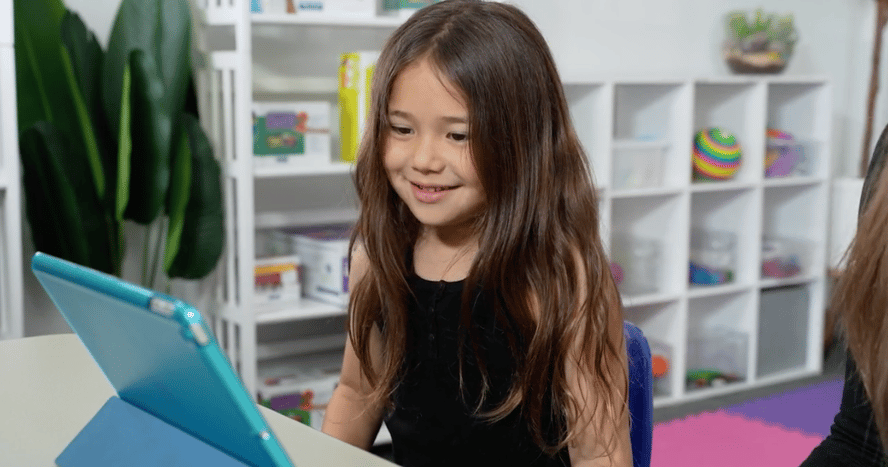
Work Smarter, Not Harder
Did you know that we all have primary ways in which we tend to show love and affection to others around us? We also have preferences on how we like to have others reciprocate and show their love to us. However, autistic children may struggle with social reciprocity and sometimes it may feel impossible to connect with them on a deeper level.
For you, does it mean a lot if someone takes the time to write you a generous note with thoughtful words to describe you? Maybe you would prefer to be shown appreciation instead with a gift, or would it be most beneficial and meaningful to you to come home to an empty dishwasher and all the laundry folded? How do you typically show others around you that they are loved? Do you tend to speak kindly to them, or possibly you like to pick up tangible items for those most important to you? There are several ways we both give and receive love to one another but doing it the “correct” way, which means the most to others, can be more powerful than we could ever imagine.
Our children are no different in how they like to give and receive love. Not one of us is alike, much like autistic children, in the way in which we desire to be cared for. However, we can explore and learn about the different types to see which one may be the best fit for our child.
In Dr. Gary Chapman’s book The 5 Love Languages, he states that there are five ways in which we connect with others around us. These include acts of service, like cleaning the house or changing the oil in your car, receiving gifts, such as a handmade card or an extravagant watch, quality time, possibly watching a movie or eating dinner together, words of affirmation reminding you how good of a parent you are or what a good job at work you are doing, and physical touch, a warm hug, or holding hands.

Thinking about this in terms of an autistic child, many of these are probably more comfortable than others for them. For instance, we as a caregiver, may want to show our love with kisses and holding hands, however, physical touch may be something that calms an autistic child or may, instead, create a sense of uncomfortableness. As Temple Grandin states in her 2010 movie,
“I've always wanted to understand the gentleness that other people feel by being hugged by their mothers. And now I've made a machine that lets me do that. It feels like a wire gets reconnected. Like something gets repaired.”
Autistic children may need to be shown love or have their needs met differently, but never less than neurotypical children.
Not only is it important to recognize how to “fill the buckets” and show appreciation in the most meaningful way to our children, but it is also important for us to have self-exploration for ourselves. What do we need most to feel fulfilled? Understanding our love language can help us better understand ourselves and make sure our own needs are being nurtured. As Dr. Chapman states, “Relationships are two ways.” When you have an awareness of what you need to feel appreciated, we should share that information. Likewise, we should inquire and learn what our partners, children, and other important people in our lives need to help strengthen our relationships and “grow closer to those that mean the most to us.”

Ways to Know Ourselves and Our Loved Ones Better
So how do we accomplish this? How can we not only know ourselves better but also our loved ones? One way is to try a variety of ways to show appreciation to your child. Give them praise when they do something good and see how they react. Reinforce them with a small treat. Does this seem to make them feel good? By trial and error, we can start to understand which ways seem to mean the most and continuously speak each other’s love languages. Another way is to ask them. Dr. Chapman has a variety of resources and even free assessments on his website for caregivers to use to connect more deeply with their children. If you are interested in taking the assessment for yourself, with your partner, or with your child, check out some of his free quizzes here: https://5lovelanguages.com/quizzes. He also has several books that help promote loving children effectively, including autistic children: The 5 Love Languages® of Children
Strategies for Autistic Children
If you need some additional strategies to connect with your autistic child, try some of these ideas. Learn more about their individual sensory needs. Try to be mindful of things that may trigger or relax them. Explore things that you have in common with them. Set time aside to do the things that you both enjoy doing and do them together. Finally, find out their interests and take special opportunities to focus on them. You could connect more deeply by listening to their knowledge about a special interest, such as animals, and then even spending quality time at the zoo together.

Strategies for You
What about caregivers? We know that caregivers who have children with special needs can sometimes face higher levels of stress, both financially and emotionally. Knowing yourself and what you need to feel good is just as important as caring for those around you. The car cannot run if you do not fill up the gas tank. Neither can you! Fill up your gas tank.
Recognizing your own needs and nurturing them is crucial. If you need physical touch, maybe you can ask for a massage from your partner or treat yourself to a pedicure. If you need words of affirmation, make sure you communicate how important it is to hear that you are doing a good job, or even better… write it on a sticky note and put it on your bathroom mirror to remind yourself every day how valuable you are to those around you. Then, try to do the same for your child. If your child is reinforced by a special treat, try to have a special moment and bond with them while you feed them a piece of M&M candy. If your child likes quality time, take the time to play their favorite game before bed. All of these things can help to build stronger attachments and promote social reciprocity, a skill that does not always come naturally for our children.
Work smarter, not harder to show love and build relationships with those around you, especially your autistic child. Get to know yourself, so that you can have a full tank to spread love and connect on deeper levels. As Temple Grandin said,
“It is often said that autistic people are interested in things, or objects, more than people, but people who are interested in things can do great things if we help them develop their strengths.”
Find your child’s strengths and nurture them with all the love (in their language) you can give. This is truly the best gift they can ever receive.
What are the “Love Languages” that your child prefers? Please let us know in the comments section below.
We hope you enjoyed the information in this article. STAGES® Learning also offers free downloadable resources to support teaching and learning with autistic individuals. Start with our free Picture Noun Cards and see our collection of other downloadable resources here!





